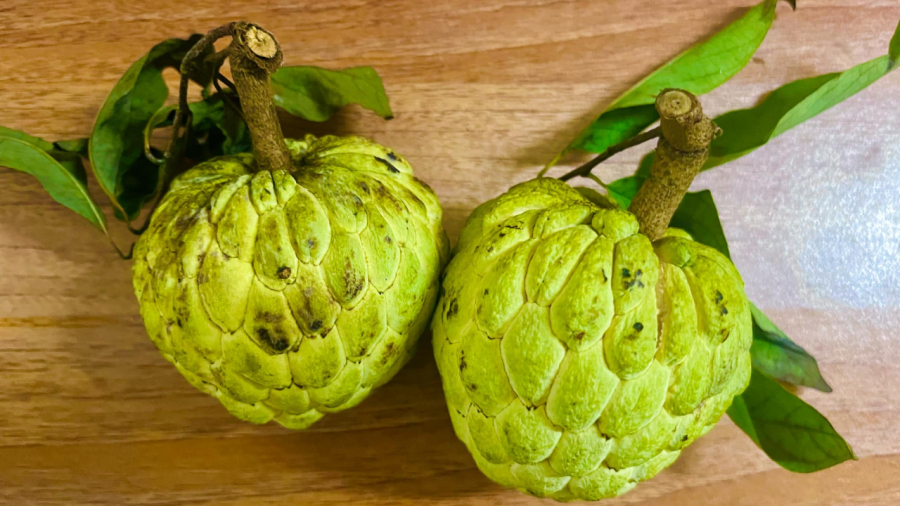The custard apple, also known as the sugar-apple, is a delicious tropical fruit beloved by many. These round fruits offer sweet, soft flesh that is packed with nutrients for the body.
Health Benefits of Custard Apples
– Good for Eye Health
Custard apples are rich in vitamins A and C, which help improve vision. They also contain riboflavin and vitamin B2, which protect the body from free radicals, combat aging, and keep eyes healthy and bright.
– Improves Digestion
The high fiber content in custard apples ensures smooth digestion, stimulates intestinal peristalsis, and aids in the excretion of waste. This helps alleviate issues like indigestion and constipation.

Custard apples are nutrient-dense.
– Fights Fatigue
Custard apples provide a range of nutrients that combat fatigue and physical weakness. They are also a good source of potassium, which improves blood circulation throughout the body, preventing muscle weakness and fatigue.
– Heart-Healthy and Blood Pressure Stabilizer
Custard apples are rich in magnesium, which has a relaxing effect on the body and helps prevent heart attacks. Additionally, the vitamin B6 in custard apples helps reduce levels of nomocystein, an amino acid derived from dietary protein that, when absorbed into the blood, increases the risk of heart disease. This, in turn, lowers the risk of cardiovascular issues.
The abundant potassium and magnesium in custard apples also help regulate blood pressure, keeping it stable.
– Lowers Cholesterol
Custard apples are a good source of niacin and fiber, which help reduce cholesterol levels in the body. This makes them beneficial for those suffering from high blood fat, fatty liver, and atherosclerosis, among other conditions.
Can Custard Apples Cause Heat in the Body?
While custard apples offer numerous health benefits, they should be consumed in moderation to avoid any adverse effects. In traditional Chinese medicine, custard apples are considered sweet and sour in taste, with a warming effect on the body. Excessive consumption may lead to heat-related issues such as acne, constipation, and a feeling of warmth in the body.
It is recommended to treat custard apples as a snack, replacing sweets, junk food, and fast food. One custard apple per day is considered a healthy amount. When eating custard apples, be careful not to bite into the seeds, as they contain toxic substances, including squamosten A, anoslin, neo-desacetyluvaricin, neo-anonin-B, neo-reliculatacin A, squamocins, and squamostatins. However, if you accidentally swallow a whole seed, there is no cause for alarm. The hard outer shell will prevent the release of these toxic compounds.
Nonetheless, always exercise caution when eating custard apples to avoid choking, especially with children. In addition to the edible fruit, other parts of the custard apple tree, such as the seeds, leaves, stems, and roots, can be used medicinally, but only under professional guidance due to their toxicity.





































